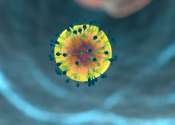Cholesterol levels sustainably lowered using base editing
Base editing is a novel gene editing approach that can precisely change individual building blocks in a DNA sequence. By installing such a point mutation in a specific gene, an international research team led by the University ...
May 19, 2021
0
53









